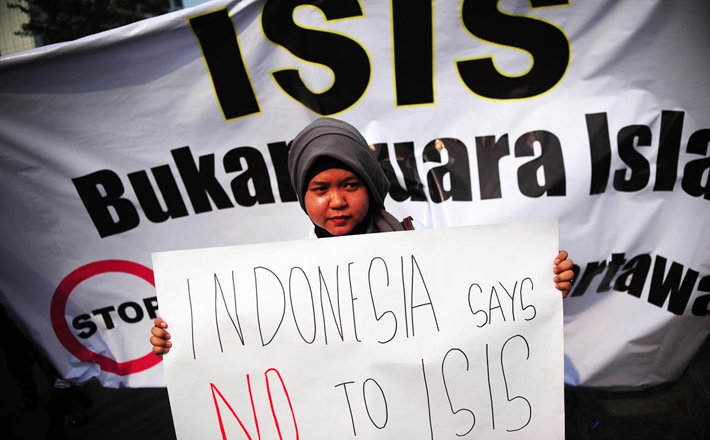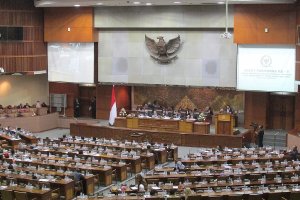An article May 20 in the Asia Times presents insight into the influence of the Islamic State in Indonesia, the world’s most populous Islamic country.

The article was written by Abhishek Mohanty, junior research associate at the German Southeast Asian Center of Excellence for Public Policy and Good Governance in Bangkok. Some key points he makes are:
Constitutionally, Indonesia deems itself a religiously tolerant state which officially recognizes six religions: Islam, Protestantism, Roman Catholicism, Hinduism, Buddhism and Confucianism. Such religious tolerance has been one key to political stability in a geographically diverse country of 240 million, whose people have customarily chosen nationalism over faith.
In recent years, Indonesia has witnessed fanatic attacks by terrorist groups affiliated to the self-styled Islamic State (IS). Islamic State or Daesh, is a Salafi/Wahhabi terrorist organization which gained prominence in 2014 when it captured Mosul and Sinjar in Iraq. Its policy is establishing a global caliphate.
Immediately after the proclamation of Islamic State by al-Baghdadi in June 2014, two prominent militant leaders of Indonesia, Abu Wardah of Mujahideen Indonesia Timor and Abu Bakar Baashir of Jemaah Anshorut Tauhid pledged allegiance to IS.
Fortunately, the radicals remain a minority. In the latest study by the Pew Research Centre, about 92% of respondents from Indonesia said that suicide bombings and other forms of violence against civilians in the name of Islam can never be justified. Roughly 79% of Indonesian Muslims have negative views about IS. Only 4% have sympathy towards the group.
But while this may look small on paper, Indonesia is the world’s most populous Muslim nation. In real numbers that translates into some 10 million people.
The full article can be read on the Asia Times.


